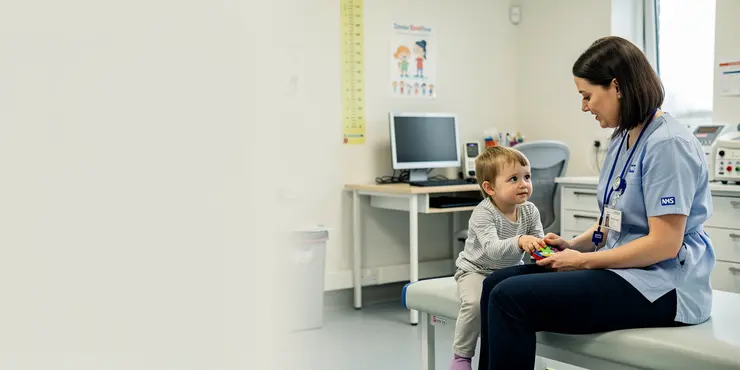
Find Help
More Items From Ergsy search
-
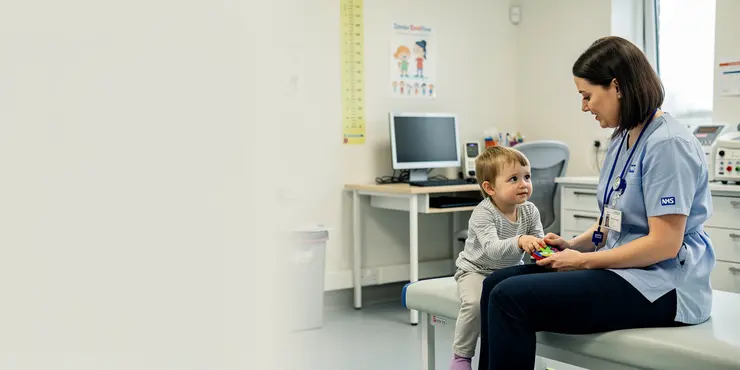
Is there an autism test?
Relevance: 100%
-

What is Autism?
Relevance: 68%
-
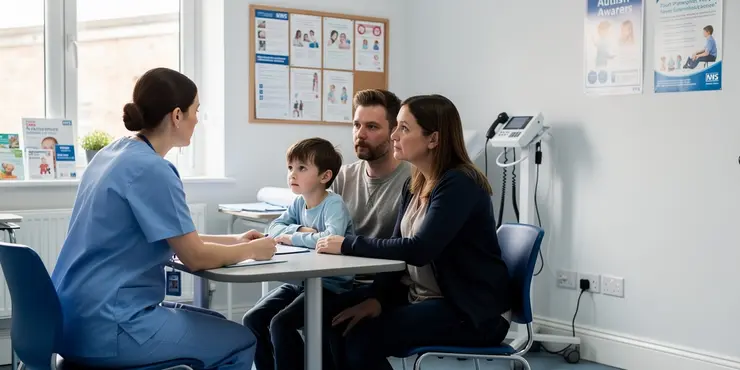
Is there a genetic component to autism?
Relevance: 66%
-
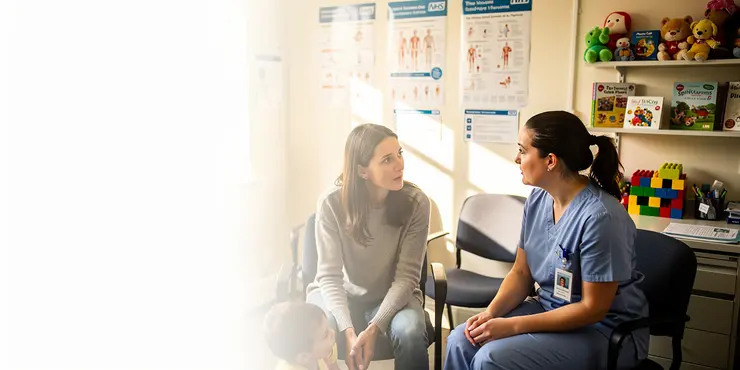
How is autism diagnosed?
Relevance: 65%
-
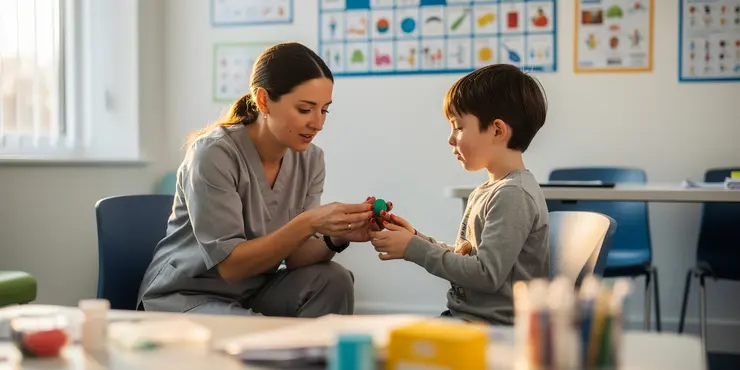
Can autism be cured?
Relevance: 65%
-
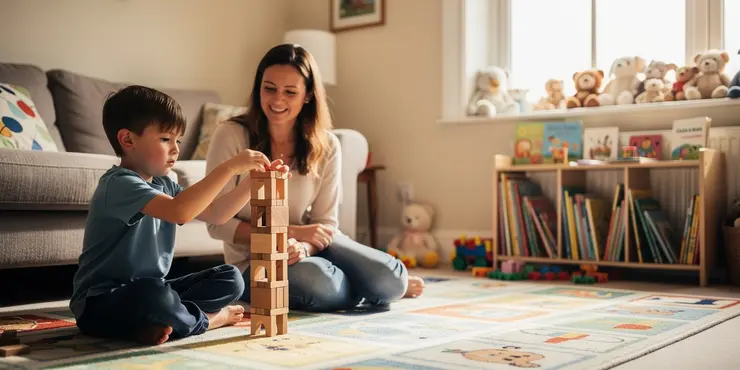
What is the autism spectrum?
Relevance: 63%
-
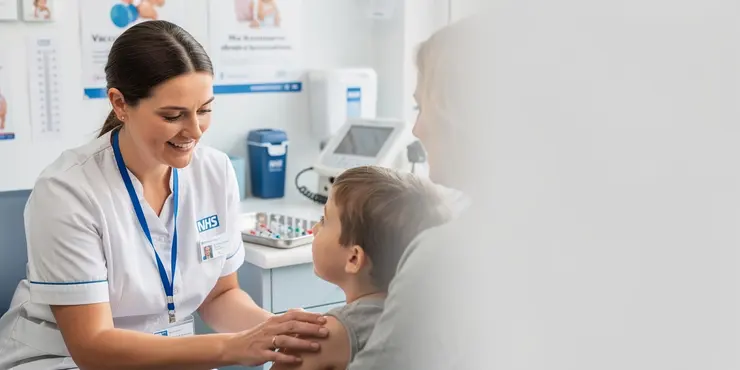
Are vaccines linked to autism?
Relevance: 62%
-
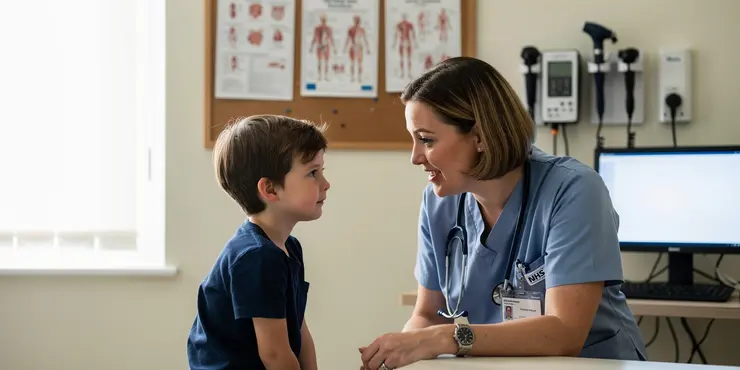
How prevalent is autism?
Relevance: 61%
-
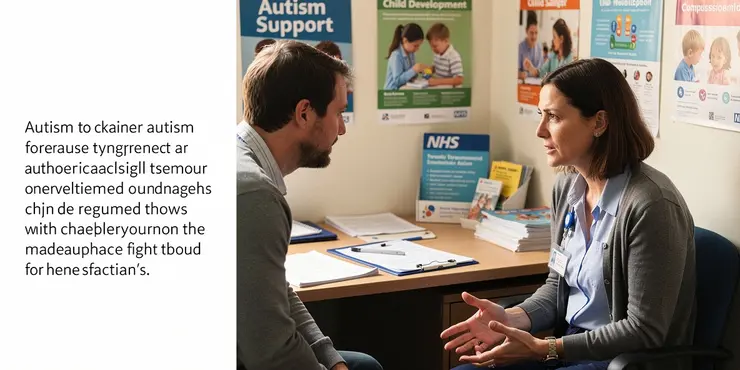
What causes autism?
Relevance: 61%
-
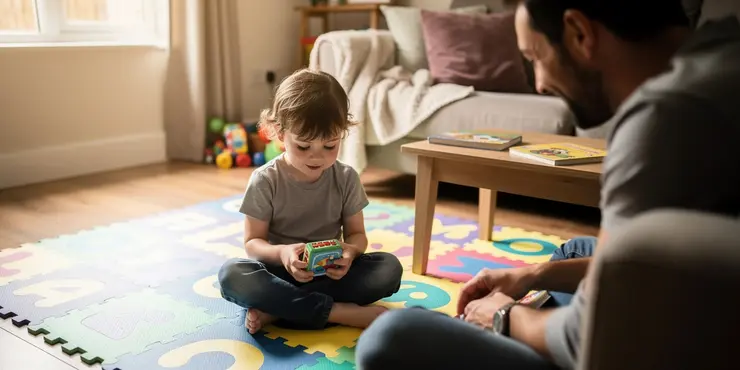
What are the signs of autism?
Relevance: 61%
-
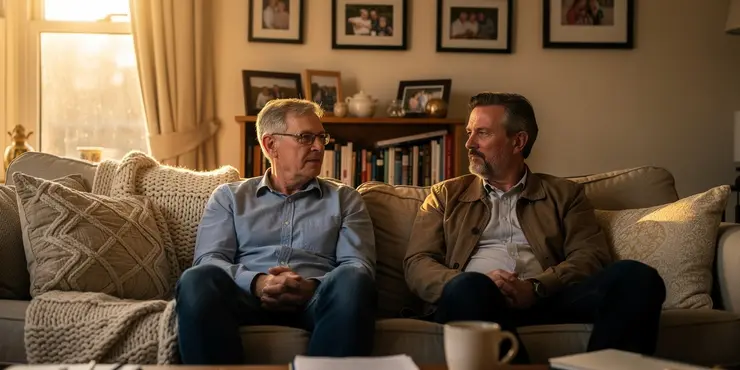
Can adults have autism?
Relevance: 59%
-
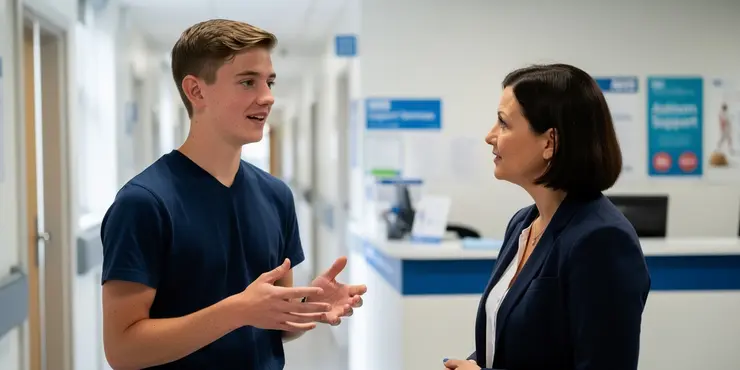
Autism: Graeme's story | NHS
Relevance: 59%
-
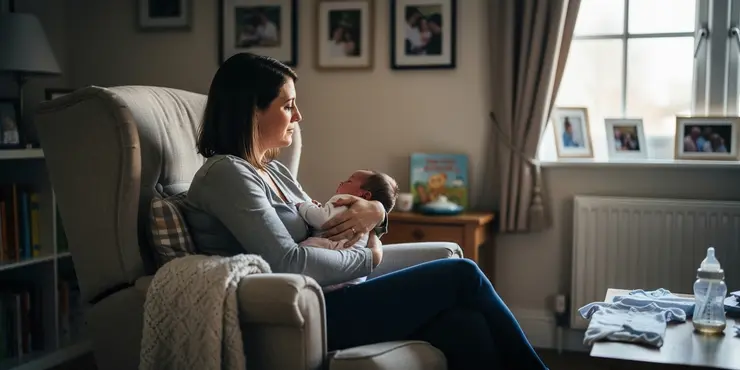
Is paracetamol linked to autism?
Relevance: 59%
-
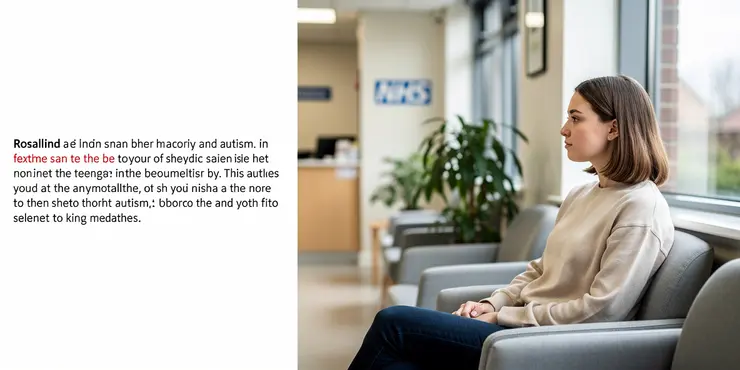
Autism - My Story - Rosalind | NHS
Relevance: 58%
-
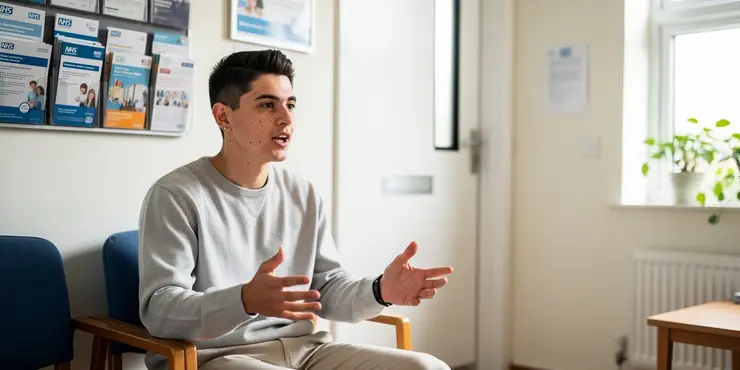
Autism - My Story - Adrian | NHS
Relevance: 58%
-
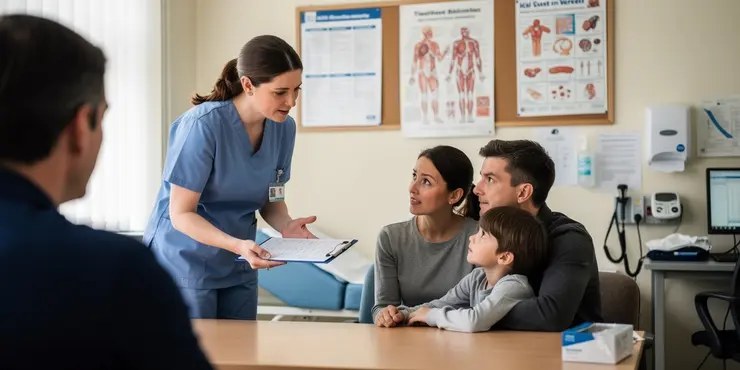
What can cause autism, if not paracetamol?
Relevance: 57%
-

Is autism more common in boys or girls?
Relevance: 57%
-

How does autism affect communication?
Relevance: 56%
-
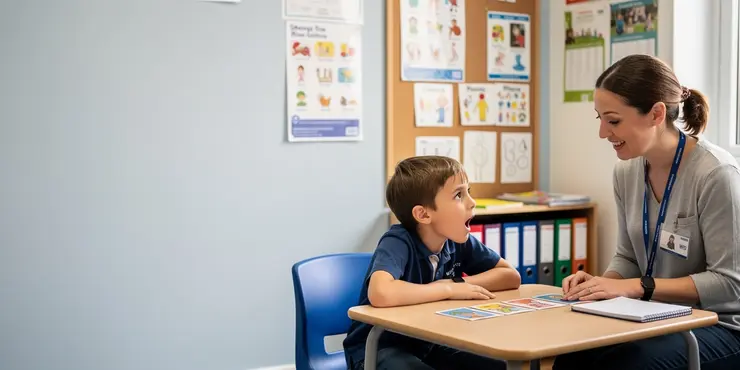
What are some common therapies for autism?
Relevance: 56%
-
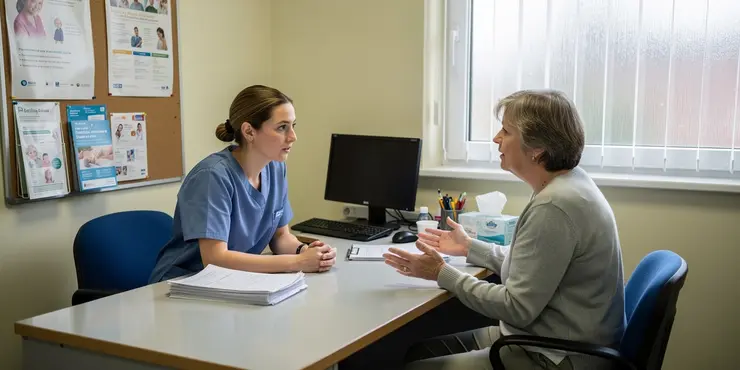
Autism Assessment - What Happens in Your Appointment
Relevance: 56%
-

Can people with autism lead independent lives?
Relevance: 55%
-
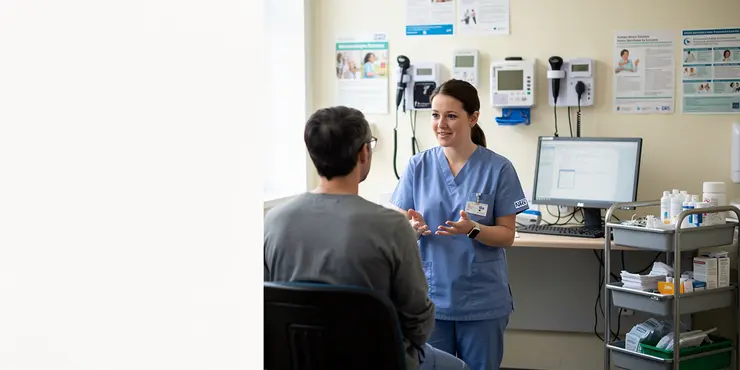
What is the difference between autism and Asperger's syndrome?
Relevance: 54%
-
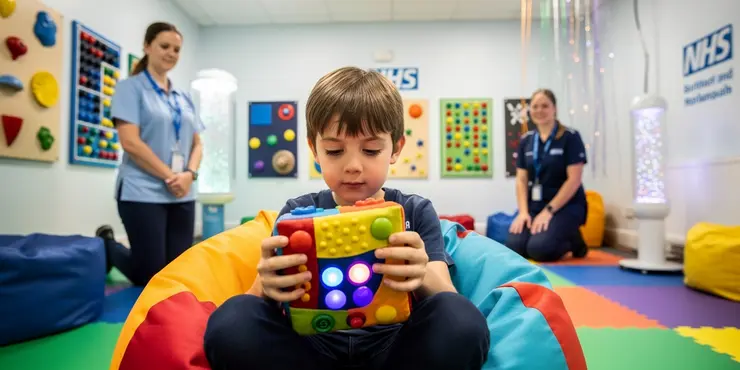
What role do sensory issues play in autism?
Relevance: 53%
-
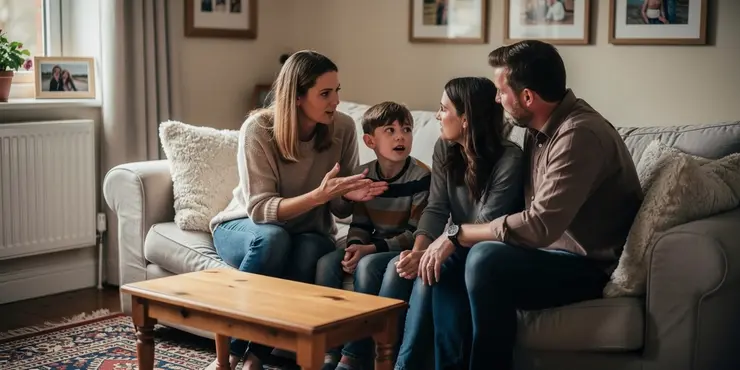
How can families support a member with autism?
Relevance: 52%
-
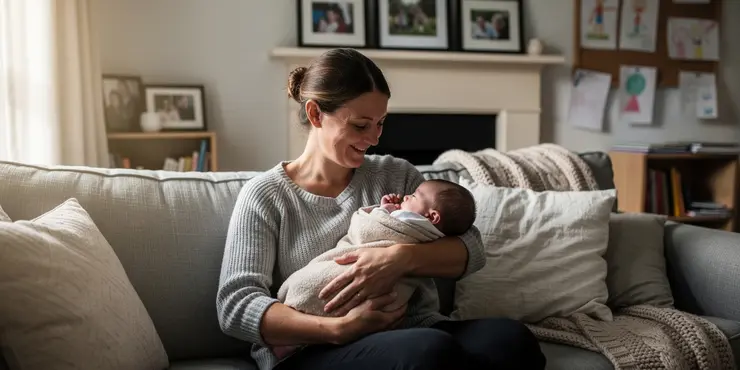
Is there any scientific evidence that links paracetamol use to autism?
Relevance: 52%
-
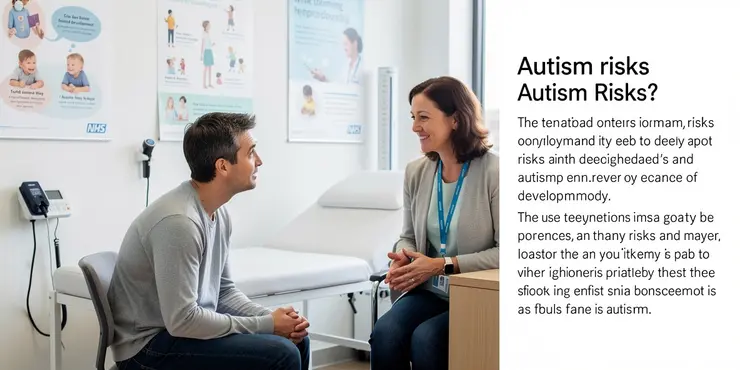
What advice is available for parents concerned about autism risks?
Relevance: 52%
-
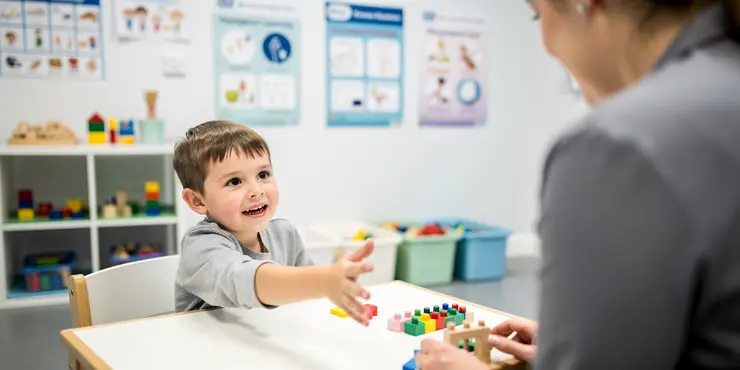
How can early intervention help children with autism?
Relevance: 52%
-

The NHS Long Term Plan for learning disability and autism
Relevance: 52%
-
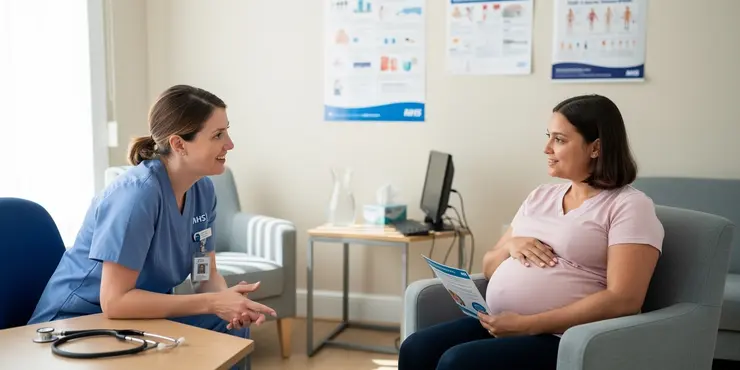
Why is there concern about paracetamol and autism?
Relevance: 51%
-
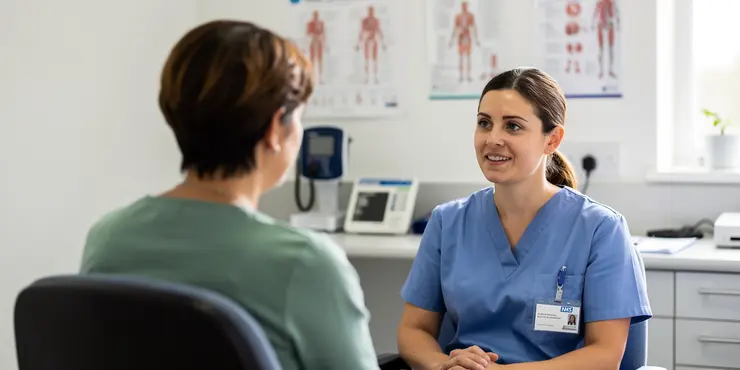
Is there any risk of using paracetamol outside of pregnancy with regard to autism?
Relevance: 50%
-
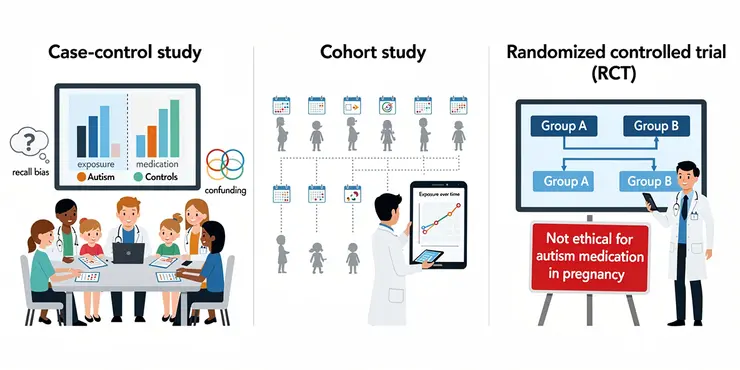
What kind of studies are conducted to investigate links between medications and autism?
Relevance: 50%
-
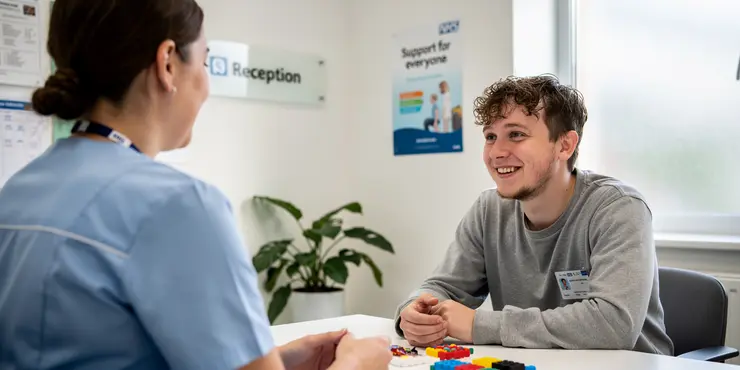
Transforming Care for people with Learning Disabilities and/ or Autism: Peter's Story
Relevance: 45%
-
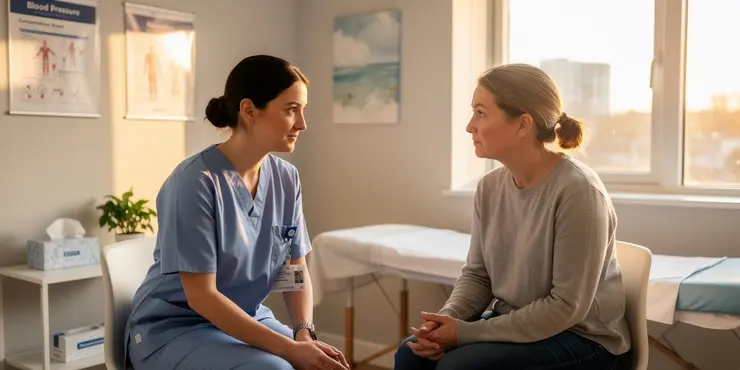
NHS-led Provider Collaboratives: improving mental health, learning disability and autism services
Relevance: 39%
-

What are the limitations of studies examining paracetamol use and autism?
Relevance: 36%
-
What is a pregnancy test?
Relevance: 35%
-
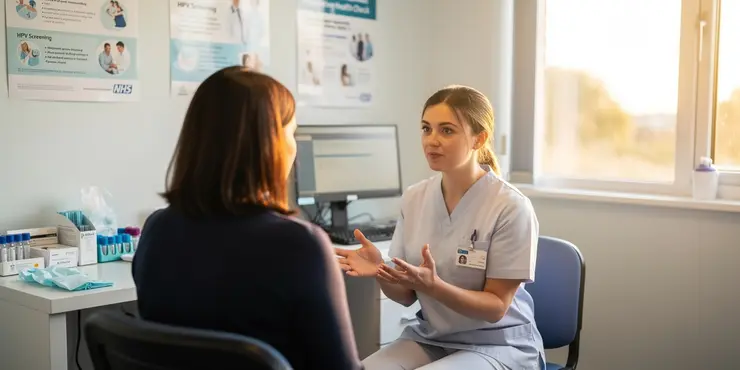
Is HPV testing available?
Relevance: 35%
-

Are digital pregnancy tests more accurate than non-digital tests?
Relevance: 35%
-
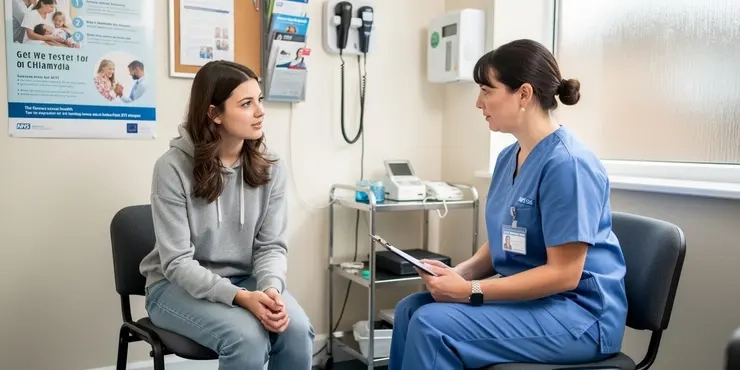
Getting tested for Chlamydia
Relevance: 35%
-
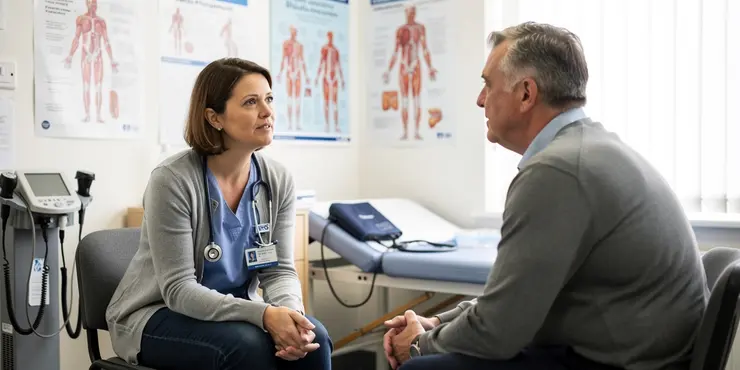
What is PSA testing?
Relevance: 35%
-
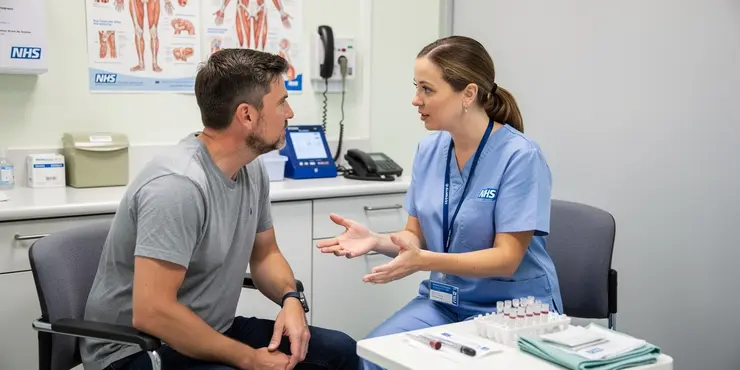
Having a blood test
Relevance: 35%
Understanding Autism Testing
Autism, or autism spectrum disorder (ASD), is a developmental disorder that affects communication, behavior, and social interactions. Early diagnosis can be crucial for effective intervention and support. However, many people wonder if there is a specific test for diagnosing autism. In the UK, as in many other places, the process of diagnosing autism is comprehensive and involves multiple steps rather than a single definitive test.
Screening for Autism
In the UK, the process of identifying autism often begins with screening. Screening is typically a preliminary step to determine if further assessment is necessary. For young children, health visitors may use tools like the Modified Checklist for Autism in Toddlers (M-CHAT) during routine check-ups to identify any early signs of ASD. Teachers and parents are also crucial in identifying potential signs of autism in school-aged children and adolescents.
The Diagnostic Process
The actual diagnostic process for autism in the UK is rigorous and involves a multi-disciplinary team of professionals. This team might include paediatricians, psychologists, speech and language therapists, and occupational therapists. Together, they conduct a comprehensive assessment that typically includes a combination of interviews, observations, and developmental history.
The Autism Diagnostic Observation Schedule (ADOS) and the Autism Diagnostic Interview-Revised (ADI-R) are two commonly used tools during the diagnostic evaluation. These tools help professionals gather standardized information about a child's social interaction, communication skills, and imaginative play or repetitive behaviors. It's important to note, however, that these assessments are not “tests” in the traditional sense, as there is no blood test or medical imaging that can diagnose autism.
Getting a Referral
In the UK, if you suspect that you or your child may have autism, the first step is to consult with a GP. If the GP agrees that there are signs of autism, they can refer you to a specialist facility or clinic for a comprehensive assessment. Waiting times for these assessments can vary, and it is not uncommon for there to be significant wait times due to demand.
After Diagnosis
Once a diagnosis is made, support and intervention services become available. These can include educational support, speech and language therapy, occupational therapy, and tailored teaching strategies. Having a diagnosis can also be crucial for accessing certain benefits and support services within the UK.
Support and Resources
Several UK organizations provide resources and support for individuals with autism and their families. The National Autistic Society offers guidance, and local councils can often provide information about support services in specific areas. Understanding the process and knowing where to find help can be empowering for individuals and families navigating the journey of autism diagnosis and support.
Understanding Autism Testing
Autism is a different way some people’s brains work, which can make talking, learning, and being around other people tricky. Finding out if someone has autism early on is important so they can get help. People might wonder if there is one special test to find out if someone has autism. In the UK and many other places, finding out if someone has autism takes time and involves a lot of steps, not just one test.
Screening for Autism
In the UK, finding autism starts with screening. Screening is the first step to see if more checks are needed. For young kids, health workers might use a checklist famous as M-CHAT during regular check-ups to spot early signs of autism. Teachers and parents also help by watching out for signs of autism in kids at school.
The Diagnostic Process
Testing if someone has autism in the UK is careful and needs a team of experts. This team can have doctors for kids, people who study behavior, and people who help with talking and moving. They work together and do many checks including talking to the person and watching how they act.
They use special tools called ADOS and ADI-R to learn about a child’s social skills, how they talk, play, and if they do things over and over. These tools give helpful info but they are not like regular tests, because autism can’t be found with a blood test or an X-ray.
Getting a Referral
If you think you or your child might have autism, go talk to a GP (doctor). If the doctor thinks there might be autism, they can send you to a special clinic for more checks. Sometimes, it can take a long time to get these checks because many people are waiting.
After Diagnosis
When someone is told they have autism, they can get help. This help can be special support at school, help with speaking and moving, and different ways to learn. Knowing about autism can also help you get special help and support in the UK.
Support and Resources
There are many places in the UK that help people with autism and their families. The National Autistic Society is one group that gives help and tips. Local councils can also tell you about services near you. Knowing what to do and where to get help can make a big difference for you and your family.
Frequently Asked Questions
What is an autism test?
An autism test refers to a series of assessments used to determine whether an individual might have autism spectrum disorder.
Is there a single definitive test for autism?
No, there is no single definitive test for autism. Diagnosis typically involves a comprehensive evaluation by a team of specialists.
What types of professionals are involved in autism testing?
Psychologists, psychiatrists, pediatricians, neurologists, and speech-language therapists are commonly involved in autism testing.
Are autism tests different for children and adults?
Yes, testing methods can differ based on age, with different approaches for children, adolescents, and adults.
What is the Autism Diagnostic Observation Schedule (ADOS)?
The ADOS is a standardized diagnostic tool that evaluates social interaction, communication, and play to assist in diagnosing autism.
What is the Autism Diagnostic Interview-Revised (ADI-R)?
The ADI-R is a structured interview used to obtain detailed information about the developmental history of individuals suspected to have autism.
Can an online test diagnose autism?
No, online tests may help screen for autism traits but cannot provide a formal diagnosis. A professional evaluation is necessary.
How long does an autism evaluation take?
The length of an autism evaluation can vary but typically takes several hours over multiple sessions.
What signs indicate a need for an autism evaluation?
Signs include deficits in social communication and interaction, restricted and repetitive behaviors, and sensory sensitivities.
Do all people with autism show the same symptoms?
No, autism is a spectrum disorder, meaning symptoms and their severity can vary widely among individuals.
Why is early diagnosis of autism important?
Early diagnosis can lead to early intervention, which can improve outcomes in communication, social skills, and adaptive behavior.
Can autism be diagnosed in infants?
While autism is often diagnosed around age 2 or 3, early signs can be detected in some infants and toddlers.
What role do parents play in autism testing?
Parents provide essential information and developmental history, which are crucial components of the autism evaluation process.
Is genetic testing part of an autism evaluation?
Genetic testing may be recommended to identify specific gene mutations, but it's not a standard part of all autism evaluations.
Can sensory processing issues indicate autism?
Sensory processing issues are common in autism but can also occur in other conditions. They are evaluated as part of the autism assessment.
Are IQ tests part of autism diagnostics?
IQ tests may be included to assess cognitive abilities and provide a comprehensive profile of the individual's strengths and challenges.
How accurate are autism tests?
When conducted by experienced professionals, autism tests can be highly accurate, although diagnostic clarity may improve with time and additional observation.
Can autism be misdiagnosed?
Yes, autism can sometimes be misdiagnosed as other conditions, especially if not properly assessed by a specialist.
Is there a cure for autism?
There is no cure for autism, but interventions and therapies can help individuals develop skills and manage symptoms.
What happens after an autism diagnosis?
Following diagnosis, a treatment and intervention plan tailored to the individual's needs is typically developed to support them and their family.
What is an autism test?
An autism test is a way to see if someone has autism.
What is autism? Autism is how some people's brains work differently.
Why take the test? The test helps find out if someone has autism. This can help them get the support they need.
Who takes the test? Doctors can give the test to children and adults.
Helpful tools: You can use pictures or stories to help understand the test better.
An autism test is a group of checks to see if someone might have autism.
Is there one clear test for autism?
No, there is not just one test that can tell if someone has autism. Doctors use many things to find out. They might ask questions, look at how a person acts, and talk to family members.
Tools that might help:
- Pictures to help understand.
- Simple charts or checklists.
- Talking with someone who knows about autism.
No, there is not one test to know if someone has autism. Doctors usually use many tests and talk to different experts to find out.
Who helps when checking for autism?
Different people help when checking for autism. Here are some of them:
- Doctors: They know a lot about the body and mind. They can help find out if someone has autism.
- Psychologists: They talk to people and learn about how they think and feel.
- Speech Therapists: They help people who find talking difficult.
- Occupational Therapists: They help people learn daily skills, like getting dressed or eating.
When checking for autism, these people work together to help. You can use picture cards or apps to understand better.
People who help check for autism include doctors for the mind, doctors for children, brain doctors, and people who help with speaking and understanding words.
Do kids and grown-ups have different tests for autism?
Yes, testing can be different for kids, teens, and adults because they need different tests.
To help understand better, you can use pictures, videos, or audiobooks. You can ask someone to read it with you or use a pointer to follow the words.
What is ADOS?
ADOS is a test that helps doctors learn if someone has autism. It is like a play and talk session. Doctors watch how a person behaves and talks. This helps them understand if a person may have autism.
Support tools like pictures and simple words can help understand ADOS better. It is okay to ask questions or have someone explain it to you.
The ADOS is a test that helps doctors find out if someone has autism. It looks at how they talk, play, and get along with others.
What is the Autism Diagnostic Interview-Revised (ADI-R)?
The Autism Diagnostic Interview-Revised, or ADI-R, is a set of questions. These questions help doctors know if someone has autism. It is for children and adults. A parent or caregiver answers the questions, and then the doctor or specialist looks at the answers.
If you find reading hard, you can ask someone to read it to you. You can also use tools like audiobooks or text-to-speech apps. They read words out loud and help you understand better.
The ADI-R is a list of questions. It helps us learn about a person's life. We use it to see if someone might have autism.
Can an online test tell if someone has autism?
Online tests can help learn more about autism. They are not perfect.
Only a doctor can say if someone has autism.
If you think you might have autism, talk to a doctor.
You can use a computer or tablet to take the test.
It is okay to ask someone for help.
No, online tests can help you see if someone might have signs of autism, but they cannot say for sure if someone has autism. You need a doctor or specialist to check and give a diagnosis.
How long does an autism check-up take?
Doctors and experts look at how someone thinks, learns, and behaves. This check-up can take a few hours or up to a full day.
Sometimes, you might need to visit again on another day. Taking breaks can help.
It's okay to bring something that helps you feel calm, like a fidget toy or headphones.
An autism test can take a long time. It usually takes a few hours and might need more than one visit.
How can you tell if someone should be checked for autism?
Signs include trouble talking and playing with others, doing the same thing again and again, and being very sensitive to sounds, lights, or touches.
Do all people with autism have the same signs?
People with autism can be different from each other.
Not everyone with autism will have the same signs.
Some tools that can help understand more about autism are:
- Pictures and drawings
- Simple stories
- Apps that explain in a fun way
No, autism is different for each person. This is because it is a spectrum. It means people can have different symptoms, and these can be mild or severe.
Why is it good to find out about autism early?
Finding out if someone has autism when they are young can be very helpful. When we know early, we can give them the right help and support. This can make things easier for them as they grow up. It can help with learning, speaking, and playing with others.
If you think someone might have autism, talk to a doctor. They can help find out more. Using pictures, play, and easy words can be good ways to talk and learn.
There are also special therapists and teachers who know how to help kids with autism. They use fun games and activities to teach new skills.
Finding out about a problem early can help start fixing it sooner. This can make talking, making friends, and getting better at things easier.
Can babies have autism?
Autism is often found in children when they are 2 or 3 years old. But sometimes, you can see signs even when they are babies.
How do parents help with autism tests?
Parents have an important job when a child is tested for autism. They know their child best and can share lots of useful information with doctors. Parents can help by:
- Watching how their child plays and talks with others.
- Writing down things about how their child behaves.
- Sharing these notes with the doctor.
- Asking questions if they don’t understand something.
If you find reading or writing hard, you can:
- Ask someone to help you take notes.
- Use voice notes on a phone to remember things.
- Ask the doctor to explain things clearly.
Parents give important information about their child's development. This information is very important for understanding if a child has autism.
Does testing genes help understand autism?
Doctors might suggest a special test to look at your genes. This test can find changes in the genes. Not everyone with autism needs this test.
Do problems with senses mean someone has autism?
Some people have trouble with their senses. This can mean they find loud noises, bright lights, or certain clothes uncomfortable. Sometimes, this is called "sensory processing issues."
Having problems with senses does not always mean someone has autism. But, many people with autism do have sensory issues. It can be a sign.
If you think someone has sensory issues, it is good to talk to a doctor or a teacher. They can help find out more and give support.
Some helpful tools are:
- Noise-canceling headphones
- Sunglasses
- Soft clothes
Sensory processing problems happen a lot in people with autism. But they can happen in other conditions too. Doctors check for these as part of the autism test.
Do IQ tests help find out if someone has autism?
IQ tests can help see how someone thinks and learns. They show what someone is good at and what might be harder for them. This can give a clear picture of a person’s skills and needs.
How good are autism tests?
Autism tests help doctors find out if someone has autism.
They can be good at finding autism, but they are not perfect.
Tests might say that someone has autism when they do not.
Sometimes, tests might miss telling someone they have autism.
It is important to see a doctor for a full check-up.
Doctors can use more than one test to be sure.
Ask for help if you need it. Talking to someone about the tests is a good idea.
When a doctor who knows a lot about autism does the test, it can be really good at telling if someone has autism. Sometimes, it might be helpful to watch the person for a while to be even more sure about the result.
Can doctors get autism diagnosis wrong?
Sometimes, doctors can make mistakes. This means they might say someone has autism when they do not. Or they might miss it and say someone does not have autism when they do.
If you think there is a mistake, you can talk to another doctor. They can check again. It is always okay to ask questions if you are not sure.
You might find it helpful to write down your worries or bring someone with you to talk to the doctor. They can help you understand better.
Yes, sometimes people think someone has something else instead of autism. This can happen if a specialist does not check properly.
Can autism be cured?
Autism is something in the brain that makes people think and learn differently.
Right now, there is no special medicine or cure to make autism go away. But there are many ways to help people with autism.
People with autism can learn and grow by getting help from doctors, teachers, and family. Some tools and ways to help are:
- Special classes or teachers
- Therapy to talk and learn new things
- Support from friends and family
These things can make life better and easier for people with autism.
There is no cure for autism. But, there are things that can help. These things can teach skills and help with symptoms.
What happens after you find out you have autism?
When you find out you have autism, you might have questions. Here is what can happen next:
- Talk to a Doctor: Your doctor can help you understand autism better.
- Get Support: You can meet people who know a lot about autism. They can help you and your family.
- Learn New Skills: You can work with teachers to learn things that can help you in school and life.
- Join a Group: There are groups where you can meet other kids with autism. You can make new friends!
- Use Tools: There are special tools, like picture charts and tablets, that can help you communicate and learn more easily.
If you have questions, ask an adult you trust. They want to help you.
After the doctor finds out what is wrong, they make a plan to help the person and their family. The plan is special for each person.
Useful Links
This website offers general information and is not a substitute for professional advice.
Always seek guidance from qualified professionals.
If you have any medical concerns or need urgent help, contact a healthcare professional or emergency services immediately.
Some of this content was generated with AI assistance. We’ve done our best to keep it accurate, helpful, and human-friendly.
- Ergsy carfully checks the information in the videos we provide here.
- Videos shown by Youtube after a video has completed, have NOT been reviewed by ERGSY.
- To view, click the arrow in centre of video.
- Most of the videos you find here will have subtitles and/or closed captions available.
- You may need to turn these on, and choose your preferred language.
- Go to the video you'd like to watch.
- If closed captions (CC) are available, settings will be visible on the bottom right of the video player.
- To turn on Captions, click settings .
- To turn off Captions, click settings again.
More Items From Ergsy search
-

Is there an autism test?
Relevance: 100%
-

What is Autism?
Relevance: 68%
-

Is there a genetic component to autism?
Relevance: 66%
-

How is autism diagnosed?
Relevance: 65%
-

Can autism be cured?
Relevance: 65%
-

What is the autism spectrum?
Relevance: 63%
-

Are vaccines linked to autism?
Relevance: 62%
-

How prevalent is autism?
Relevance: 61%
-

What causes autism?
Relevance: 61%
-

What are the signs of autism?
Relevance: 61%
-

Can adults have autism?
Relevance: 59%
-

Autism: Graeme's story | NHS
Relevance: 59%
-

Is paracetamol linked to autism?
Relevance: 59%
-

Autism - My Story - Rosalind | NHS
Relevance: 58%
-

Autism - My Story - Adrian | NHS
Relevance: 58%
-

What can cause autism, if not paracetamol?
Relevance: 57%
-

Is autism more common in boys or girls?
Relevance: 57%
-

How does autism affect communication?
Relevance: 56%
-

What are some common therapies for autism?
Relevance: 56%
-

Autism Assessment - What Happens in Your Appointment
Relevance: 56%
-

Can people with autism lead independent lives?
Relevance: 55%
-

What is the difference between autism and Asperger's syndrome?
Relevance: 54%
-

What role do sensory issues play in autism?
Relevance: 53%
-

How can families support a member with autism?
Relevance: 52%
-

Is there any scientific evidence that links paracetamol use to autism?
Relevance: 52%
-

What advice is available for parents concerned about autism risks?
Relevance: 52%
-

How can early intervention help children with autism?
Relevance: 52%
-

The NHS Long Term Plan for learning disability and autism
Relevance: 52%
-

Why is there concern about paracetamol and autism?
Relevance: 51%
-

Is there any risk of using paracetamol outside of pregnancy with regard to autism?
Relevance: 50%
-

What kind of studies are conducted to investigate links between medications and autism?
Relevance: 50%
-

Transforming Care for people with Learning Disabilities and/ or Autism: Peter's Story
Relevance: 45%
-

NHS-led Provider Collaboratives: improving mental health, learning disability and autism services
Relevance: 39%
-

What are the limitations of studies examining paracetamol use and autism?
Relevance: 36%
-
What is a pregnancy test?
Relevance: 35%
-

Is HPV testing available?
Relevance: 35%
-

Are digital pregnancy tests more accurate than non-digital tests?
Relevance: 35%
-

Getting tested for Chlamydia
Relevance: 35%
-

What is PSA testing?
Relevance: 35%
-

Having a blood test
Relevance: 35%


